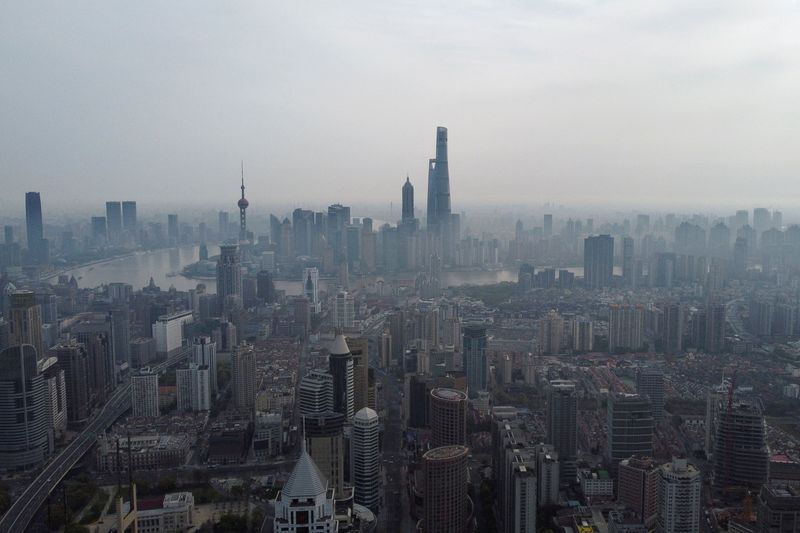BERLIN/FRANKFURT (Reuters) -Germany currently has no plans to ban the export to China of chemicals used to manufacture semiconductors, officials said on Friday, a day after a Bloomberg report suggested such a move could be in the works and Beijing called it destabilising.
Chancellor Olaf Scholz's office "is not currently pursuing any plans for an export ban on chip chemicals to China", a spokesperson said. The person added that talks with foreign partners were confidential, without elaborating.
Bloomberg reported on Thursday that the government was considering restrictions on the chemicals in order to reduce Germany's exposure to the Asian economic superpower.
The report suggested the move was in early stages of discussion but officials taking part in the talks were aware that such a step could damage business ties with Beijing.
China's foreign ministry spokesperson Mao Ning, in response to a question on Friday about the potential German curb, said it was "not constructive for some countries to impose export controls on China in the name of reducing dependence".
Mao said it would only hurt others and destabilise the global industrial supply chain, urging countries planning curbs to respect the regulations of the market economy, and "work with China to safeguard the international economic and trade order".
Germany is increasingly wary of China as a strategic rival as well as its largest trading partner, and has considered a series of steps as it reassesses bilateral ties.
Merck KGaA and BASF, two German chemicals majors who could be affected by the export curbs if implemented, declined direct comment.
But Merck's chief executive Belen Garijo on Friday told its annual meeting that she hoped "common sense and citizens' interest" would prevail, noting that Merck had strong roots in China going back nearly 90 years.
TECHNOLOGICAL EDGE
The easiest way for Germany to implement export controls would be to put the respective goods and services on its national dual-use list, one of the people in Bloomberg's report said.
A second German government spokesperson, representing the economy ministry, told a briefing on Friday they were not aware of any mooted chemicals export ban and said there were no related plans for stricter dual-use regulations.
A Germany-based chemical industry source, speaking on condition of anonymity, said such move would not make sense as the majority of the semiconductor chemicals value chains of Merck and BASF did not involve Germany or Europe geographically.
In many cases, it would amount to an attempt to stop German companies from moving materials between sites in China. German reliance on Chinese imports into Germany would also be exposed in a retaliatory cycle, the source said.
If Germany did press ahead with curbs, it would be following moves by some partner countries.
The government in the Netherlands, home to semiconductor equipment makers ASM International and ASML Holding (AS:ASML), last month laid out plans to further restrict exports of semiconductor technology to protect national security, joining the U.S. effort to curb chip exports to China.
German Economy Minister Robert Habeck had in March suggested that Berlin could impose export restrictions on China to prevent Germany from losing its technological edge, and Scholz's government is working on a strategy paper on China to be rolled out this year.

Germany, and the European Union as a whole, are already pushing efforts to bring more chip production onto home soil by offering subsidies.
Taiwan chipmaker TSMC, the world's largest, is in talks to open what would be its first European plant in Germany, while U.S. chipmaker Intel Corp (NASDAQ:INTC) announced last year had picked the German town of Magdeburg as the site for a huge new 17-billion euro chip-making complex.